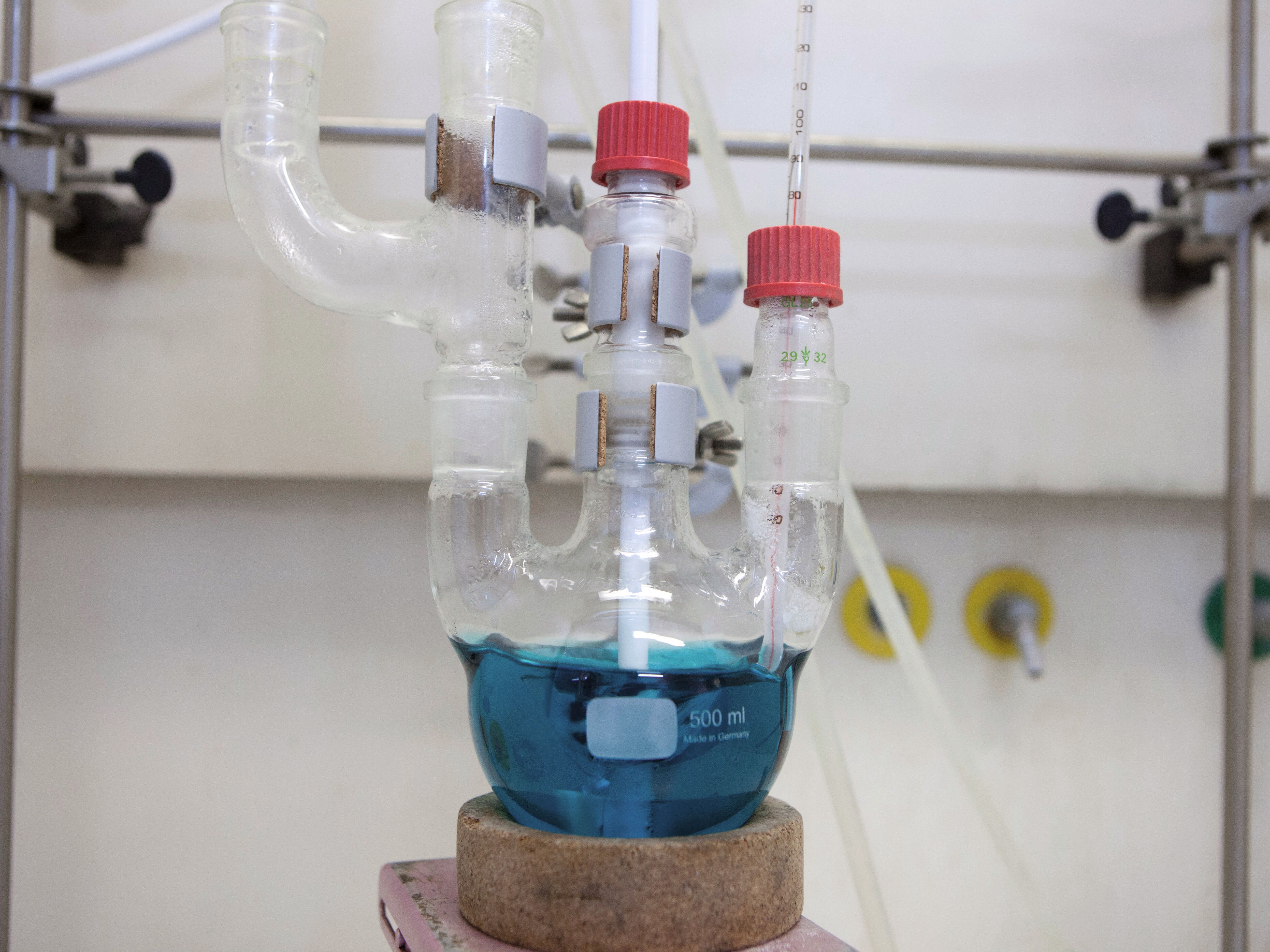Process engineering
How do you get from the (raw) material to the finished product? From ore to iron? From cotton to a T-shirt? Process engineering is concerned with the development and realisation of such processes, in which materials are transformed by chemical, physical and biological processes.

Overview of the academic discipline
When studying process engineering, students acquire knowledge of material properties, biological relationships, thermodynamics and fluid mechanics as well as the structure and function of process engineering machines, systems and apparatus.
Biotechnology, a specialised field of process engineering, is particularly concerned with whether and how the smallest organisms or their components can be used in technical applications, such as bacteria as energy stores, enzymes as accelerators of manufacturing processes or tools for genetic engineering. The degree programmes can be offered with different thematic focuses, for example with a focus on energy technology, environmental technology, biotechnology or process technology, which is also reflected in the different weighting of scientific and technical content.
In some areas, process engineering overlaps with chemical engineering and production technologies.
Which topics are included in the curriculum?
The modules of the Bachelor's degree programme provide the scientific and technical basis, for example in the form of mathematics, chemistry, mechanics, materials science, thermodynamics, fluid dynamics, apparatus engineering, plant engineering, control engineering and system dynamics
Modules on the specific subject areas build on this: Process engineering, bioprocess engineering, plant and apparatus engineering, water quality and process engineering for water/wastewater treatment, process dynamics and control, process design, numerical mathematics, heat and mass transfer.
The biotechnology degree programmes also focus on understanding molecular and cellular mechanisms and bioprocesses, including in the form of genetic engineering, bioinformatics, bioprocess measurement and control technology and cell culture technology.
In some cases, an increased application focus is possible in specialised areas and sectors such as cosmetics, pharmaceutical or process and natural product technology, environmental and biotechnology, coatings engineering or textile chemistry.
What are the requirements?
Depending on the university, a pre-study work placement may be necessary. Important school subjects include physics, chemistry and maths. Biology is also important in biotechnology.
What study programmes are there to choose from?
Bachelor's and Master's degree programmes in this field are available at universities and universities of applied sciences. In some cases, process engineering and biotechnology are also offered in combination. Combinations of process engineering and chemical engineering are also possible. There are also a number of degree programmes with different names but related subjects such as ‘Technology of Renewable Resources’.
What job opportunities are there after graduation?
Employment opportunities for engineers in process engineering or biotechnology exist primarily with operators of process engineering plants, e.g. in the chemical, pharmaceutical and biotechnological industries, in the petrochemical industry, the iron and steel industry, the plastics industry, the wood and building materials industry, the glass and ceramics industry, the paper and pulp industry, the textile industry, the food and beverage industry, in supply and waste disposal companies and power generation companies.
In addition, there are also employment opportunities with planning, manufacturing and assembly companies for process engineering machines and plants, with monitoring and approval authorities or technical monitoring organisations as well as in engineering and expert offices.
